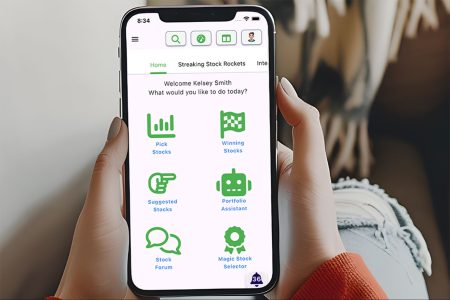Entrepreneur
Entrepreneurship didn’t start in Silicon Valley — it dates back thousands of years. Before venture capital firms and tech unicorns, another breed of entrepreneurs mastered the art of business: the publicani of the Roman Empire. These private contractors played a critical role in Rome’s expansion, financing large infrastructure projects, tax collection and military supply chains.
They built vast networks, raised capital from wealthy investors and scaled operations across the empire. Their sophisticated financial engineering, strategic partnerships and ability to navigate political landscapes made them some of the most powerful economic players of their time.
But their dominance wasn’t permanent. Just as quickly as they rose, they fell, brought down by shifting political tides, overreliance on government contracts and ethical missteps that eroded public trust. Their story serves as both an inspiration and a cautionary tale for today’s entrepreneurs.
What can we learn from them? Their rise and fall offer critical lessons on scalability, adaptability, financial strategy and the long-term consequences of market power without ethical leadership. Here’s how their experiences map to modern business challenges:
Related: 4 Leadership Lessons You Can Learn From a Roman Emperor
Scale smart — but don’t rely on one revenue stream
The publicani dominated through government contracts — collecting taxes, managing trade and financing public works. It worked brilliantly until Rome reformed the system and shut them out. With their primary revenue source gone, many of these once-powerful enterprises collapsed almost overnight. Today’s equivalent? Startups and companies that build their entire business models around a single market, policy or government incentive. While lucrative in the short term, this dependency can become a ticking time bomb.
Consider the solar energy sector, where many companies flourished due to government subsidies, until policy shifts dramatically reduced their financial support, leaving unprepared businesses struggling to survive. Similarly, companies that rely heavily on a dominant partner, such as an ecommerce brand selling exclusively on Amazon, can find themselves in jeopardy when platform policies change or commissions rise unexpectedly.
Smart scaling involves mitigating risk by diversifying revenue sources across different markets, industries, and customer segments. Multiple income streams not only provide financial stability but also allow businesses to weather sudden changes in economic conditions, regulatory frameworks and industry trends.
Takeaway: Ask yourself: What percentage of your revenue depends on a single client or government contract? If it’s more than 30%, it’s time to diversify. Identify new revenue streams, explore adjacent markets and build a resilient business that can thrive even when the landscape shifts.
Adaptability is the ultimate moat
The publicani thrived under the Roman Republic but crumbled when Augustus centralized power. Their business model was built on a political structure that no longer existed. As Rome transitioned from a republic to an empire, the rules of engagement changed, contracts were revoked, monopolies dismantled, and the once-powerful publicani found themselves obsolete.
This historical lesson mirrors what happens in today’s rapidly shifting business landscape. Companies that fail to anticipate or respond to regulatory, technological or market shifts risk extinction. Kodak, once a leader in photography, failed to pivot when digital technology emerged. Blockbuster underestimated the rise of streaming, allowing Netflix to redefine entertainment. In contrast, companies like Microsoft and IBM reinvented themselves multiple times, transitioning from hardware and software dominance to cloud computing and AI innovation.
Adaptability isn’t just about survival; it’s about staying ahead. Founders must proactively scan the horizon for potential disruptors, regulatory changes and technological advancements that could reshape their industry. A rigid business model is a vulnerable one.
Takeaway: Is your company built to withstand regulatory changes? Run a “worst-case” scenario: What happens if a key law shifts tomorrow? If the rules changed overnight, would your business survive? Regularly assess market trends, emerging technologies and policy updates to ensure your company remains agile and competitive.
Related: Don’t Make the Same Mistake Leaders at Kodak, Blockbuster and Xerox Made When Disruption Comes to Your Industry
Financial engineering is a tool — not a strategy
The publicani pooled investor capital to win high-stakes government contracts, an ancient version of PE deals, and leveraged growth. They scaled fast but overleveraged, collapsing when political winds shifted. Their financial success was built on borrowed money and speculative bets rather than a fundamentally sound business model. When government contracts dried up, they had no fallback, leading to rapid insolvency.
This pattern has been repeated throughout history, from the railroad boom-and-bust cycles of the 19th century to the dot-com crash of the early 2000s. More recently, the overleveraging of companies like WeWork and Theranos demonstrates the dangers of mistaking financial maneuvering for a sustainable strategy. Startups flush with VC funding often prioritize rapid expansion at the expense of profitability, assuming that continued investment will cover their burn rate indefinitely. However, when investor sentiment shifts, many of these companies collapse because they lack a viable core business.
Sustainable companies, on the other hand, use capital as a means to strengthen a solid foundation. Amazon, for example, reinvested early profits into logistics and cloud computing, creating diverse revenue streams that ensured long-term stability. Tesla, despite its aggressive expansion, strategically leveraged capital while maintaining a vision for long-term profitability.
Takeaway: Don’t mistake access to money for long-term sustainability. Capital should fuel a business model that works, not just extend the runway of one that doesn’t. Ask yourself: If funding dried up tomorrow, could your business survive on its cash flow? If not, it may be time to rethink your strategy.
Market power without ethics backfires
The publicani wielded immense market power, but their unchecked greed came at a price. At their peak, they controlled entire industries, manipulating markets and maximizing profits at the expense of the public. Their exploitative practices, especially in tax collection, led to widespread discontent, eventually sparking regulatory crackdowns and political opposition that dismantled their monopolies.
This same pattern has played out in modern business. Companies like Facebook and Google, once celebrated for their innovation, now face scrutiny over privacy violations and monopolistic behavior. Uber’s aggressive market expansion led to regulatory battles worldwide. Wells Fargo, in pursuit of short-term profit, engaged in fraudulent sales tactics, resulting in reputational damage and legal consequences.
Ethical leadership is not just a moral imperative; it’s a long-term business strategy. Companies that prioritize integrity build consumer trust and resilience. Patagonia, for example, has cultivated a loyal customer base by committing to sustainability and ethical production. Costco, despite offering lower margins, retains customers by treating employees well and maintaining fair pricing.
Takeaway: Market dominance without ethical leadership is a short-term win. Trust and reputation take longer to build than market share, but they last longer, too. Ask yourself: Are you leading with integrity, or just optimizing for short-term gains? A strong ethical foundation ensures longevity in business and shields companies from the backlash that often accompanies unchecked greed.
Related: The Skills That Make You an Ethical Leader
Play the long game
The publicani built fast, scaled big and fell hard. Their story is a blueprint, both for success and failure. They mastered capital, market dominance and government contracts, yet they failed to future-proof their business against shifting political and economic realities.
We’ve seen this same cycle repeat in modern business. Think of Facebook’s reliance on Apple’s ecosystem before iOS privacy changes wiped out ad-tracking revenues overnight. Or WeWork’s meteoric rise and dramatic implosion, fueled by easy capital but no sustainable model.
Entrepreneurship isn’t just about building — it’s about sustaining. The strongest companies aren’t the ones that rise the fastest but the ones that endure. Those who navigate uncertainty with foresight, balance financial ambition with responsibility and evolve with market shifts will outlast the competition.
History shows that the visionaries who play the long game will be rewarded.
Read the full article here









